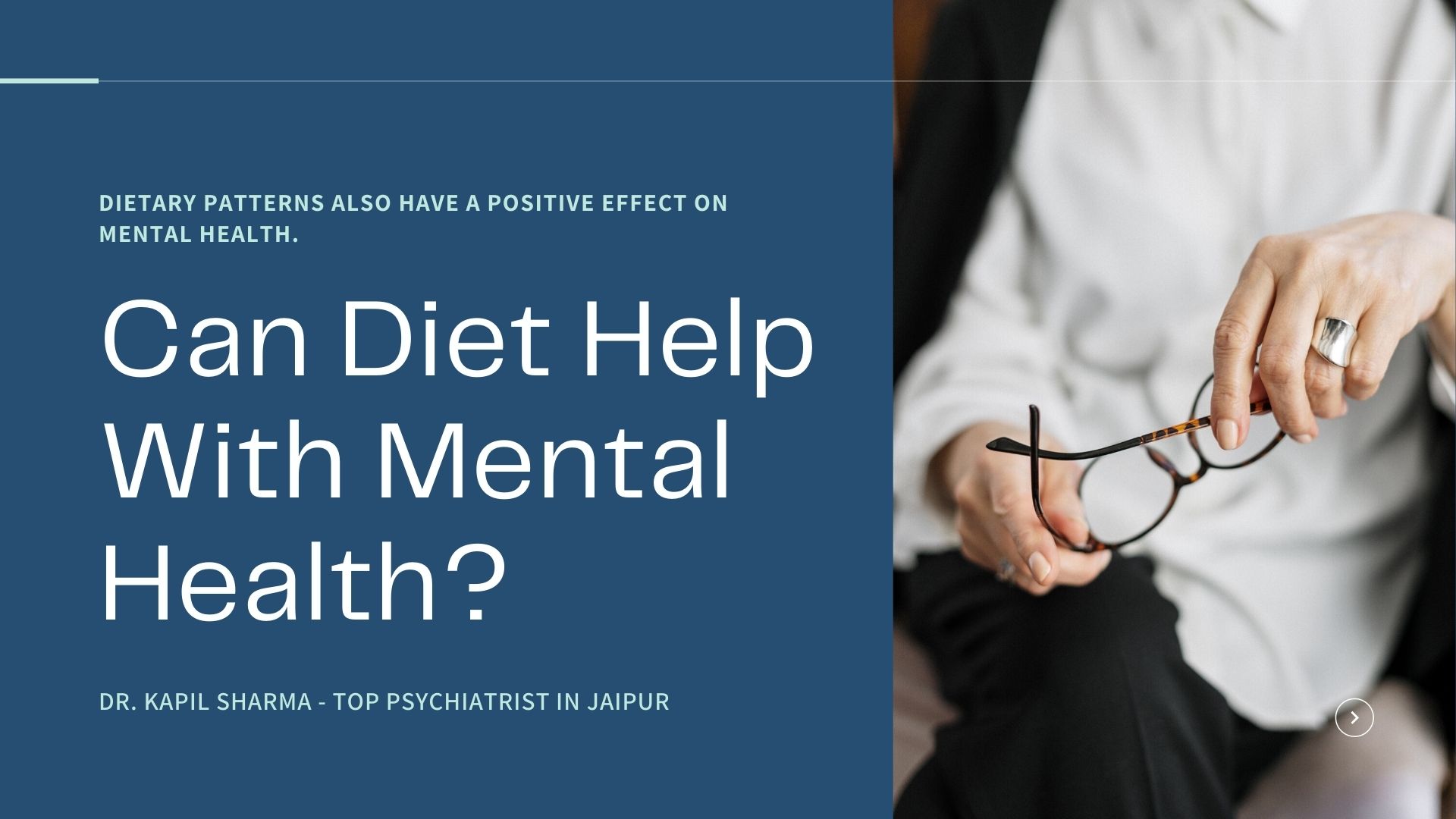
Can Diet Help With Mental Health?
Researchers have increasingly been studying the effects of diet and nutrition on mental health.
Many of them have noticed that people who follow a standard Western/ fast food/ junk food diet, which includes highly processed foods and added sugars, have higher risks of developing anxiety and depression. India is continuously developing. Indians are changing their dietary habits. We are following western standards of diet and lifestyle.
Dietary patterns also have a positive effect on mental health.
Today we review some evidence suggesting that a healthful diet can improve mental health and help treat or prevent certain mental health problems conditions. We also explore how food affects our mood.
Can diet help with mental health?
Nutritional psychiatry, which is known as psychonutrition as well, is a new field of Psychiatric medicine that focuses on the effect of diet on mental health.
The research suggests that the more closely a person follows a Western / junk/ fast food diet, with its highly processed foods, the more at risk they are for depression, anxiety and other mental health problems. People who follow an alternative staple Indian diet, on the other hand, seem to be less likely to have mental health conditions.
The hippocampus is an area of the brain that generates new neuron cells. This process is called neurogenesis. Research has linked neurogenesis in the hippocampus to a person’s mood, emotions, stress and anxiety.
Stress reduces neurogenesis in the hippocampus region, while antidepressant, anti anxiety medicines appear to promote this process.
What are the factors that negatively affect neurogenesis in the adult brain?
- Aging
- Mental illness e.g. depression, anxiety etc.
- High fat diets
- High sugar diets
- Drugs
- Sleep disturbances
- Reduced physical activity
What are healthy food and habits appear to promote neurogenesis?
Diets that include polyunsaturated fatty acids (PUFAs), curcumin, and polyphenols.
The diet should contain calories needs without a person overeating or undereating
- Physical exercise
- Continuous learning with aging
- Polyphenols are present in, strawberry, blueberry, blackberry, raspberry, Herbs and Spices, clove, cocoa powder, nuts, flaxseed, spinach, red onion, tea, Coffee, Olive, ginger, cinnamon, almond, hazelnut, vegetables, oranges, apples, grapes, peaches Etc.
Is there any best diet:
There is no specific diet that is best for mental health, but some eating patterns appear to be better than others.
Chemical in the diet that has links to lower depression rates include:
- Mmega-3 fatty acids
- Vitamin D
- Methylfolate
- S-adenosylmethionine
Healthy diet for mental health problems consists of:
- plenty of fruits
- Cow ghee
- Whole grain sprouts
- Beans and pulses
- Nuts and seeds
- Olive oil
- Low-to-moderate amounts of dairy products
Low-calorie diet:
Calorie restriction for short term has shown some evidences for treating the symptoms of depression.
Experts say calorie restriction means as reduction in energy intake well below the amount of calories that would be consumed regularly. The extent of the restriction will vary depending on the individual’s needs.
Research has some evidence to show the relationship between food intake and depression defined calorie restriction as a 25-30% reduction in calorie intake while keeping proteins, vitamins, minerals, and water intake to maintain proper nutrition. Calories restrictions should be done for the short term only, it should not be continued for long term.
It is to be kept in mind that energy restriction may lead to the development of an eating disorder. It is also unwise for people who have an existing eating disorder.
Anyone who wants to try calorie restriction should also consult to the best psychiatrist in Jaipur or a dietitian to ensure that they are getting enough nutrients.
It is paramount not to restrict calories in diet for the long term, as it can be harmful to brain cells and can make depressive symptoms worse.
Intermittent fasting
There are some evidence that shows intermittent fasting may help improve mood and mental health.
Psychiatrists have noted that fasting could contribute to improvements in mood, subjective sense of well-being, alertness, lightness.
Intermittent fasting is not safe for everyone, because people with a history of eating disorders or blood sugar issues, such as hypoglycemia, should not do intermittent fasting without doctor’s guidance.
Which Food or diets should be avoided for mental health problems?
Some researchers have found that people who follow a Western/ fast food diet containing highly processed foods are more likely to have depression, anxiety and other mental health problems.
The foods that should be avoided as much as possible:
- Processed foods
- Fried foods
- Refined flour/ maida
- High sugar products
- Beer/ alcohol
- Dietary patterns that may lead to obesity, diabetes, and other physical health problems can also aggravate mental health problems.

